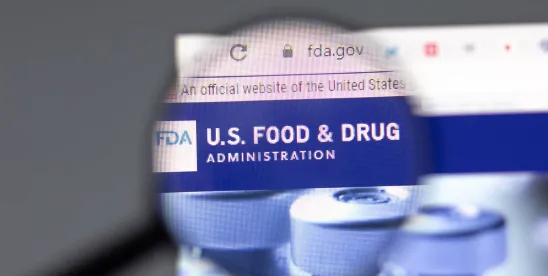Call to Action. In a letter dated July 9, 2025, the U.S. Food and Drug Administration (FDA) issued a clear call to action for manufacturers, distributors, and retailers of infant formula, baby food, and children’s food products. The agency emphasized the urgent need for greater transparency and faster communication around food recalls, especially considering recent incidents involving chemical contaminants in products intended for the most vulnerable consumers — children.
FDA Regulation of Infant Formula. Infant formula is defined under the Federal Food, Drug, and Cosmetic Act (FD&C Act) as “a food which purports to be or is represented for special dietary use solely as a food for infants by reason of its simulation of human milk or its suitability as a complete or partial substitute for human milk” (FD&C Act § 201).
Supply Chain Disruption. The disruption of infant formula supplies in 2022, caused in part by the temporary shutdown of a major infant formula manufacturing facility, demonstrated the need to create a more resilient U.S. supply for infant formula products and help avoid future shortages. The FDA states it is committed to supporting the availability of an adequate supply of safe and nutritionally adequate infant formula to help avoid the future risk of lack of access to a sole source of nutrition for a vulnerable population.
FDA Partnership with Industry. The FDA is seeking stronger partnerships with industry leaders to overhaul recall communication systems. It urges companies to notify the agency immediately upon initiating a recall, in line with existing regulations, and to expand public notification efforts in cases affecting infants and children. The FDA states it acknowledges that the public increasingly expects timely and detailed information about food recalls, particularly for vulnerable populations.
To support this transformation, the FDA outlined both short- and long-term initiatives:
- Short-term goals include launching a consumer-friendly recall webpage, improving recall data access, and enhancing risk communication strategies.
- Long-term goals focus on digital modernization, including AI-assisted data analysis and a new digital platform for industry recall submissions.
The FDA stresses that these efforts will require continued collaboration and investment from both public and private sectors. Ultimately, the initiative aims to empower parents, protect children’s health, and build a stronger, more transparent food safety system.
Conclusion. The FDA has the responsibility to ensure the safety and the nutritional content of infant formula, baby food, and children’s food products. When issues occur in the manufacturing or labeling of these products, the FDA must work closely with industry to ensure the pubic is timely notified of situations that warrant the recall of a product. Enhanced communication and transparency will serve to protect the health and well-being of infants, babies and older children. Industry should continue to monitor legislation and any regulatory changes in the requirements for the chemical content of food intended for these vulnerable populations and work collaboratively with FDA to respond swiftly to any emerging concerns.






 />i
/>i
